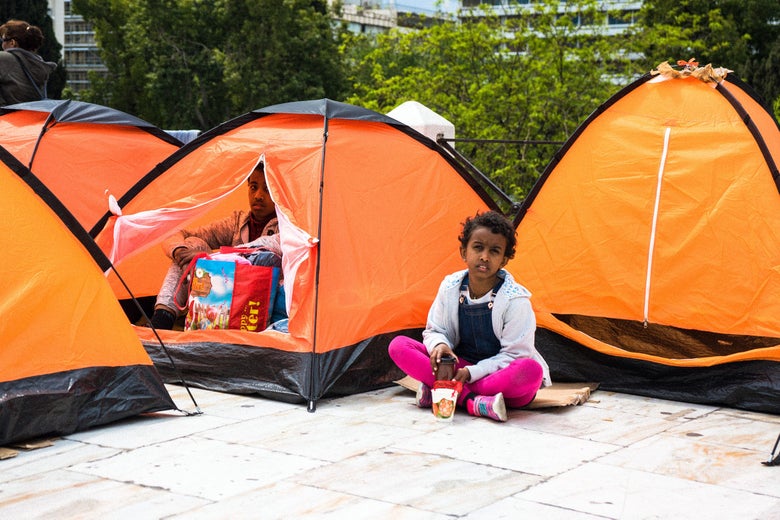When Alireza, a 26-year-old Iranian fleeing political troubles, arrived in Athens, Greece, in August 2018, he had nowhere to go. For the first three weeks, he slept in parks. During the daytime, he went to the refugee camps that have sprung up in Greece over the past decade and asked if they had accommodation.
“They said, ‘No, we are full. We can’t do anything. You can register—please write your name. We will call you,’ ” he recalls. “Nearly a year later they haven’t called me yet. The refugee system is a complete joke.”
A few years earlier, Alireza might have rolled up his sleeping bag and joined the hundreds of thousands trekking north to western Europe. But by 2018, Greece’s northern borders were closed, and beyond that was a gamut of successive Balkan police forces. Asylum-seekers were said to be beaten brutally if caught. Alireza tried to fly to Germany on a fake passport but was caught at the airport. “They detained me and sent me to a detention center for 76 days without any sunlight,” he says.
In the detention center, his fingerprints were taken, a life-defining moment, because under European Union law, asylum-seekers are required to apply for asylum in the first country they officially enter and will be returned there if they try to apply elsewhere. So he decided to apply for asylum in Greece, and was released while his claim was considered. But he was still homeless. Then he heard about Clandestina.


